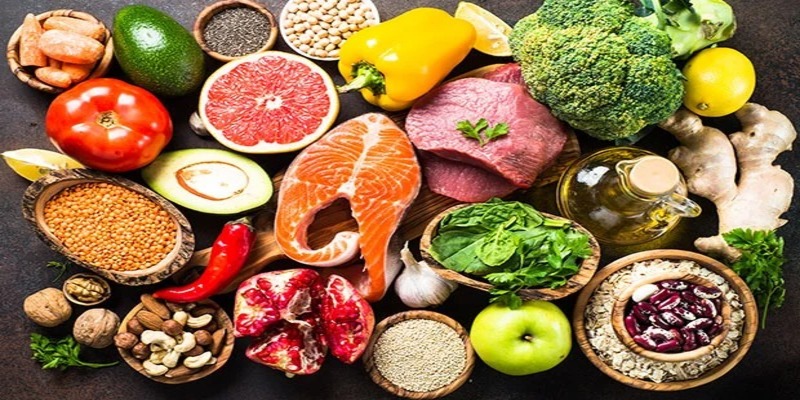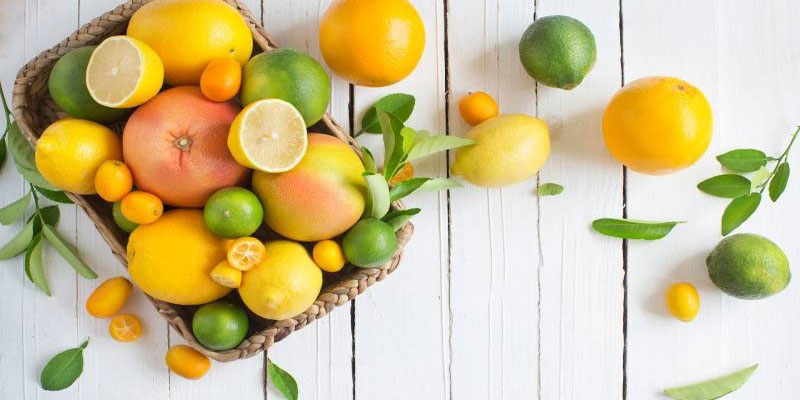A healthy diet will help maintain your immune system functioning at peak levels. It would help if you started at the grocery store to avoid catching a cold, the flu, or another sickness.
This list of foods can help strengthen your immune system and should be incorporated into your diet plan. No supplement, diet, or other lifestyle alteration, besides physical separation and suitable hygiene measures, may protect you from the 2019 coronavirus COVID-19 pandemic.
Citrus Fruits

After getting a cold, the first thing most people do is go for vitamin C. This is because it aids in developing a more robust immune system. The generation of white blood cells, essential for combating infections, may be boosted by vitamin C. Vitamin C is often relatively high in citrus fruits. There are many different kinds, so you can easily add a dash of this vitamin to any dish.
Roasted Red Peppers
Contrary to popular belief, other fruits and vegetables may hold their own against citrus in the vitamin C department. Red bell peppers are incredibly high in vitamin C—nearly three times as much per ounce as a Florida orange. Beta carotene is also abundant in these foods.
Vitamin C may benefit skin health in addition to its immune-enhancing effects. The vitamin A your body produces from the beta-carotene you consume is suitable for your eyes and skin.
Broccoli
The Vitamin and mineral content of broccoli is relatively high. Broccoli is one of the healthiest foods since it contains a wealth of nutrients, including vitamins A, C, and E, fibre, and several antioxidants. The key to preserving its potency is to cook it as little as possible, or ideally not at all.
Garlic
Nearly every culinary tradition throughout the globe includes garlic in some form. It's a must for good health and gives meals a nice kick. Ancient cultures immediately appreciated its antimicrobial properties.
It is thought that the high concentration of sulfur-containing chemicals in garlic, such as allicin, is responsible for the food's immune-boosting effects.
Ginger
As with garlic, ginger is a popular remedy for the common cold. If ginger may reduce inflammation, it could help soothe a sore throat and improve the symptoms of other inflammatory diseases. A possible benefit of ginger for nausea has been suggested. However, gingerol, a cousin of capsaicin, gives ginger its heat, which is why it is utilized in many sweet dishes. There is evidence that ginger can help reduce chronic pain and cholesterol levels.
Spinach
Spinach is cut because of its high vitamin C content and its plethora of antioxidants and beta-carotene, which may strengthen our resistance to illness. Cooking spinach for the shortest time possible preserves most of its beneficial components, just as doing the same for broccoli does. Oxalic acid is an antinutrient, yet gentle heating improves vitamin A absorption and releases other nutrients.
Yogurt
Try to find yoghurts, like Greek yoghurt, that advertise "living and active cultures" on the packaging. Your immune system might benefit from this culture's potential to activate it. It would help to choose plain yoghurts rather than the flavoured, high-sugar varieties.
Fruits and a little honey are all you need to add to plain yoghurt to make it a tasty and nutritious treat. Choosing yoghurts fortified with vitamin D is a terrific way to get more of this nutrient into your diet.
Vitamin D improves our body's natural defences and affects immune system regulation. Even now, ongoing clinical investigations are looking into its potential benefits on COVID-19.
Almonds

Vitamin E is often overlooked in favour of vitamin C as a means of protecting against and overcoming the common cold. The immune system relies on this potent antioxidant, though. Due to its fat-soluble nature, this vitamin is best absorbed alongside some fatty foods.
Almonds and other nuts are excellent sources of vitamins and healthy fats. Daily vitamin E requirements for adults are just around 15 mg. Roughly 46 whole, shelled almonds, or half a cup, will provide you with about 100 per cent of the daily value.
Sunflower Seeds
Beneficial minerals such as phosphorus, magnesium, and vitamins B-6 and E may be found in abundance in sunflower seeds. Vitamin E has a crucial role in the maintenance and control of normal immune system function.
Avocados and dark green vegetables are two further examples of foods rich in vitamin E. Selenium levels in sunflower seeds are similarly astounding. You may meet your daily needs for selenium in about 1 ounce from this reliable source.
Its effectiveness against viruses like swine flu has been the subject of research, most of which have been conducted on animals (H1N1).




